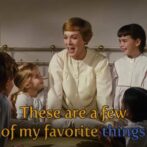Snapshots of Dementia: Scam Alert, Part 2
James Wheeler/Unsplash “What I would really like—is to have my Facebook back.” It took Tom a much longer time to get those words out than it used to. But when he said it a few months ago, my answer didn’t change. I’ve heard this request a few times since, at the request of our marriage counselors, he closed his Facebook account in 2018. I am far from a control freak. And the reason I will never say yes to this request is not so much because I’m worried about what he might post—if he could—but because that’s how the scammers initially found him. Like many of us, Tom loved connecting with friends on Facebook. And eventually, scammers loved connecting with him too. I’m not sure how they initially found him, and doubt I want to know. But I do know that those villains I’ve learned are called “catfishers” got him, and through Facebook and email, they hooked him. All through one summer and part of the fall, he was giving away money in the ways I mentioned in my last post. When I opened separate bank accounts, I wasn’t trying to keep him from our money but to protect it. Raising five children on a pastor’s salary plus my varying freelance income, we’d never had a lot extra. I had intended to use my now-regular income as savings for retirement. Instead, I had to pay off his huge credit card bills—and pay back our children’s college trust. That fall, our marriage counselors asked Tom for an accounting of how much he had given away. I’m not sure he remembered it all. But with what he could account for, the total came to nearly $30,000. Had I not found that final uncashed check, it would have been at least $10,000 more. Because the doctors still kept telling us he was fine, neither our counselors nor I associated his behavior with dementia. Serious problems, yes. Dementia—no one else seemed to think so, so why should I? At least four times, Tom fell for scams as believable as the emails we’ve all gotten from the wealthy prince in Nigeria. Despite his interest in other women, his primary motivation was helping others. Even when, through counseling, I gained the strength to insist he stop contacting the catfishers or move out, he at first insisted he needed to keep his one remaining contact. After all, she was stuck in another country with no way to get home, and “she promised to pay me back.” The few times I’ve shared even part of this story, people ask if we ever recouped our money. Not. A. Penny. Tom went to the police early on to complain about being blackmailed, and whatever they...
Read More








